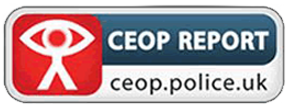Safeguarding
Young people first. Our policy on safeguarding young people and vulnerable adults.
Introduction
This policy is supplementary to The Scout Association's Safeguarding Policy. It does not in any way replace or override that policy, but provides additional guidance and procedures specific to our group.
In the case where this policy conflicts with The Scout Association's policy, the latter takes precedence, including any updates or amendments to that policy.
1. Purpose
1.1. The purpose of this policy is to ensure that all young people and vulnerable adults involved in our group are kept safe from harm.
1.2. This policy is intended to provide guidance to all adults involved in our group, including leaders, helpers, and parents, on how to recognise and report concerns about the welfare of young people and vulnerable adults.
1.3. This policy is intended to provide guidance to all young people involved in our group on how to recognise and report concerns about their own welfare or the welfare of others.
2. Scope
2.1 This policy applies to all adults and young people involved in our group, including leaders, helpers, parents, and young people.
2.2 This policy applies to all activities and events organised by our group, including regular meetings, camps, and other events.
3. Disclosure and Barring Service (DBS) Checks
3.1. All adults involved in our group are required to undergo a DBS check before they can:
- 3.1.1. become full in their role as a leader or helper;
- 3.1.2. be left alone with young people or vulnerable adults;
- 3.1.3. have unsupervised access to young people or vulnerable adults.
3.2. All adults must renew their DBS check every five years.
3.3. All adults must obtain a DBS if they are regularly involved in our group, even if they are not officially a leader or helper.
3.4. All adults attending a residential event overnight must have a valid DBS check.
3.5. We do not recognise DBS checks obtained through other organisations, including the NHS or schools. All DBS checks must be recorded on the 'Disclosures' tab of Compass.
3.6. The Group Lead Volunteer must refer any adult who has not obtained a DBS check, or is refusing to obtain a DBS check, to the District Lead Volunteer (or their delegate) for suspension from their role.
4. Training
4.1. All adults involved in our group are required to complete the following training modules:
- 4.1.1. SFTY: Safety Training
- 4.1.2. SAFE: Safeguarding
4.2. All adults must renew their training every three years, or sooner if required by The Scout Association, the District Lead Volunteer (or their delegate) or the Group Lead Volunteer.
4.3. All adults must complete the training before they can become full in their role as a leader or helper.
4.4. Any adult attending a residential event overnight must have completed the training.
4.5. We do not recognise safeguarding training obtained through other organisations, including the NHS or schools. All training must be recorded on the 'Training' tab of Compass.
4.6. If SFTY and SAFE training has been completed in another group or district, this shall be recognised in full by our group if the training is still valid and recorded on Compass.
4.7. The Group Lead Volunteer must refer any adult who has not completed the training, or is refusing to complete the training, to the District Lead Volunteer (or their delegate) for suspension from their role.
5. Reporting Concerns
5.1. It is the responsibility of all adults involved in our group to report any concerns about the welfare of young people or vulnerable adults to The Scout Association's Safeguarding Team.
5.2. All adults must be aware of the Yellow Card reporting process, which was last updated in January 2024. The Yellow Card is available from The Scout Association's website or the group at no cost.
5.3. In the event of an immediate risk of harm to a young person or vulnerable adult, the police must be called immediately. The Scout Association's Safeguarding Team must also be informed as soon as possible if the police have been called, as must the Group Lead Volunteer who will inform the District Lead Volunteer.
5.4. Concerns must be reported directly to The Scout Association's Safeguarding Team, and not to another adult. You should not attempt to investigate the concern yourself.
5.5. If a young person or vulnerable adult reports a concern to you, you must report it to The Scout Association's Safeguarding Team, even if you do not believe the concern to be serious or credible. You must not promise confidentiality to the young person or vulnerable adult.
5.6. You must not investigate concerns yourself, or speculate with other adults about the concern.
5.7. If a concern is disclosed to you, you must prepare a written record of the concern as soon as possible, and send it to The Scout Association's Safeguarding Team. This file must be kept confidential and securely, and must not be shared with anyone else unless required by law (e.g. the police or a court).


